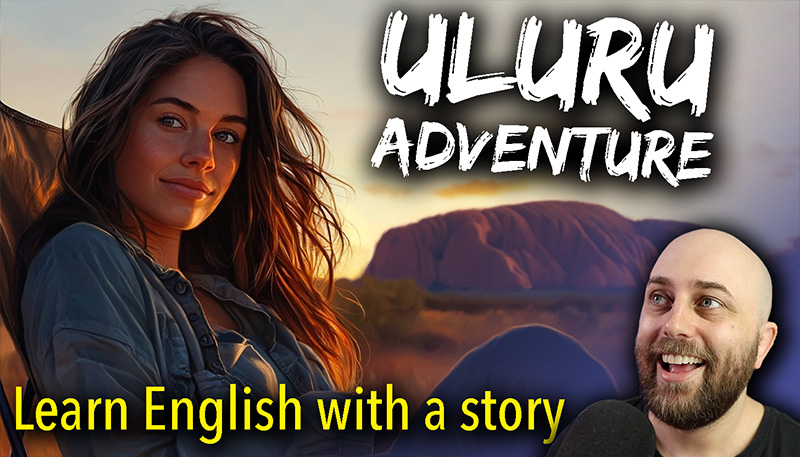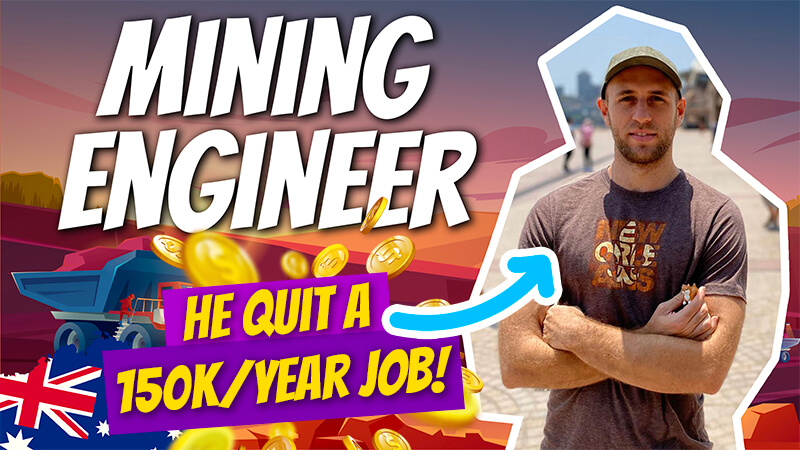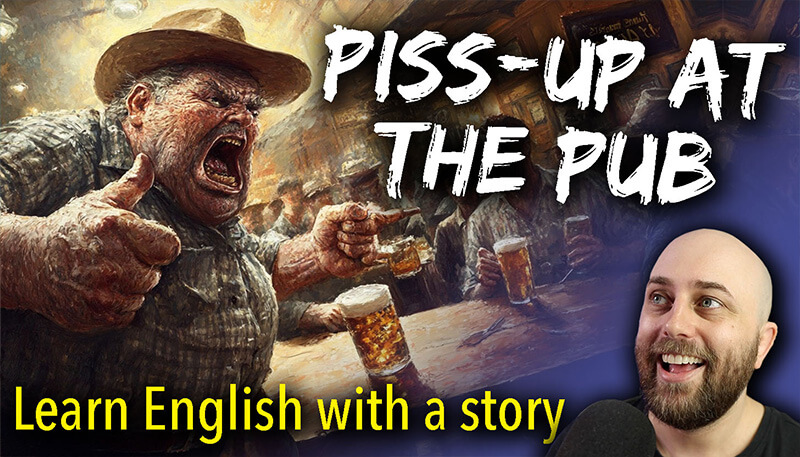Walking With Pete: Breaking Things Down Into Manageable Parts
In this episode, Walking With Pete: Breaking Things Down Into Manageable Parts, I talk to you guys about how it’s much easier to tackle big problems, big tasks, big goals, if you break them down into their most manageable parts. So, simplify and conquer.
Walking With Pete: Breaking Things Down Into Manageable Parts
G’day guys. Welcome to this episode of Walking With Pete.
Today I’m here and I want to chat to you a little bit about language learning, though it’s applicable to anything, you know, to be honest. Um… Ok, and the topic is sort of going to be focused on one thing, so simplify, whenever you’re trying to improve in an area pick one thing to work on, and for me at least, I’m a bottom up guy. I work from the thing that I’m worst at. So, with regards to learning languages, one… one piece of advice that I really offer you guys, because I know how easy it is to sort of be overwhelmed by how many things you have to work on, that you have to improve, that you have to… to try and get better at, and I know, I keep feeling this with French and with Portuguese where I can speak, I know I can speak, you know. I can talk about certain things and then as soon as I get to one area that I’m not familiar with I feel like I absolutely suck, I’m awful. I can’t… I can’t communicate, I can’t say what I want to say, I keep getting stuck, and I can’t find the words in my head, or I don’t even know the words that I want to say. And I guess it comes down to needing to break down the whole, needing to break down the entire task. So, the task say of learning Portuguese to fluency. And, breaking that down into tiny tiny manageable little pieces. So, things that I can get done today, things that I can get done in the next week, in the next month, in the next year, whatever it is, but have very small [short] term goals. Like bricks in a wall you don’t… you don’t really build the wall in a single go, in a single shot, you don’t do it all at once, you have to do it brick by brick, right? So, you can only pick up say, one or two bricks at a time and place them in the wall in order to build the entire wall, the brick wall. You can’t… you can’t look at the entire pile of bricks and be like, “Ok, everything in one shot. How do I get the pile of bricks into a single… into a single wall in one go?” Obviously, you have to say, “What’s the easiest brick for me to pick up”, turn around, “Where am I putting it?” Bam! “I’m going to get started there and then I’m going to make the entire wall brick by brick.” So, the same applies for languages I feel, and I have to keep reminding myself this… this… of this fact all the time too because I always forget it, and it’s… it’s so much easier to be annoyed with yourself, it’s so much easier to be angry, to be frustrated, to… to say it’s too hard, you know. Saying something is too difficult and trying to find reasons not to do something is so much easier, it’s so so so much easier to do that than to find reasons why you can do it. You know. This is… it’s one of those human psychological things that we fall back on all the time. We want to find a reason not to do something. We want to find a reason that something is too hard for us to do. That it’s impossible for us to do, because it’s so much easier to say that we can’t do it and then fail, and then say “Well, I told you so! I told you I couldn’t do it! So, I don’t look like an idiot now when I fail”, compared with saying, “You know what, I can do this! I can do this thing. I can learn English to fluency. I may not learn it this week to fluency, I may not learn it this year to fluency, It may take me ten years to learn to fluency but I can do it. Anyone can do it. And I’m going to start with this single brick, you know, I’m going to learn this bit of grammar or I’m going to study this area of vocab today, this week, this month. I’m going to ace this one small thing. I’m going to do really well at this one small thing, and once I get that down I’m going to focus on another thing.” And too often too with language learning it kind of gets difficult because you’re working with memory and memory fades, right? So, you don’t always learn one thing and then remember it forever. You have to constantly be refreshing things. So, it’s almost like you’re… you’re making this brick wall brick by brick and every now and then someone’s coming along and a brick disappears. Someone takes a brick out of the wall, you know, and it’s like, you turn around and all of a sudden there’s a hole in the wall and you have to fill it again. And I think that’s one of those things that is just reality. You have to remember that even in your own native language if you learn a word for something, for instance, someone’s name. You just learned someone’s name. It’s a name you’ve heard before. It’s a name you know. You can spell it. You could say it 100 times. You’d never forget how to say that name, but within a minute you’ve forgotten that that’s the person’s name. It’s just how memory works, and I have to remind myself this all the time, you know, especially when… when learning new vocabulary, especially when there’s no… there’s no um… resemblance to the word or the… the… the grammar rule in English, and it’s completely unique, it’s completely new, I’ve never seen it before and I have to learn it from scratch, I have to learn it from the very beginning. I have to constantly remind myself that I’m only human. My memory isn’t absolute, it’s not perfect, it’s not a photographic memory, I’m going to forget things and I just have to constantly remind myself of things. I have to… maybe there are things that I’ll have to learn again and again and again and again and again, maybe I’ll never remember everything, but I know that I can [learn things]. I know that I can improve. I know that I can learn a language to fluency. And so, I have to keep finding reasons to tell myself, “No you can do it. You can get there just keep at it.” You know, pick one small thing, break it down into one small thing to focus on right now, to focus on today, to focus on this week, and do well at that and then we’ll practice our… then we’ll tackle, then we’ll deal with the next problem, and we’ll take it step by step. So, it comes… it comes back to a really nice analogy that I heard. I’ve forgotten where I heard this but the analogy was effectively that you’re driving at night from one city to another city, say you’re driving from Melbourne up the east coast of Australia and you’re going to drive to Sydney in a single night. It’s… it’s um… something like 1200 kilometres to get from Melbourne to Sydney, you know, it’s about 12 hours to drive. And… you don’t drive it all at once, right, you don’t… it’s not one single go, you don’t… what am I trying to say? You don’t… you don’t get to start at point A and see point B on the horizon, especially when it’s something like that that’s 1200 kilometres away, and just start walking [driving*] and bang, you’re from A to B, you arrive. You have to drive somewhere like Melbourne to Sydney 200 feet at a time. So, what do I mean by this? The idea is that your headlights are on on your car, and your headlights can see 200 feet in front of you, and that’s what you drive [the 200 feet], that is what you deal with immediately at that moment. The only thing that you’re focused on at any one given point in time while you’re driving that amount of distance is actually only 200 feet in front of you, as far as the light can see. And so, you’re only dealing with whatever the light touches for that entire trip. You’re not looking at the trip as a whole and having to deal with it all at once, you’re just dealing with and reacting to what you can see at that moment 200 feet, 200 metres, whatever it is, in front of you, in front of the car, you know, say a rabbit jumps out you have to avoid it by driving around it. You take corners, you stop at lights, but you don’t have to… you don’t have to plan to stop and turn at every single corner that you’re going to face on that entire trip all at once. You just do it bit by bit. And language learning, or learning anything of any kind, is pretty much the same. You can’t plan it all. You can’t sit down and say, “Ok today I’m going to learn French to fluency.” You have to just say… you have to be honest with yourself, “What at the moment can I learn? What don’t I know? And how can I start tackling that problem right now?” Or say you do have a foundation in whatever it is that you’re trying to learn, say you already know the basics of English, say, you know… you already… you already know how to… oh… anything else, anything else. You already know the basic rules of a game, you already know how to stand up when you’re surfing. “What is the very next thing that is the next immediate step, the next immediate little piece that I can get better at to put me 200 feet closer to Sydney as I’m driving from Melbourne [for example]? What’s the next step forward?” And tackle that one by one, and eventually all of these things add up and you get to exactly to where you want to be, which could be fluency in English.
So, I guess that was the main idea today. It was to sort of give those basic points of it’s hard, don’t look at it as the whole journey and you’re having to work out how to do the entire journey in a single sitting, you know, you don’t sit down and say “Ok, this is the exact route that I’m going to follow to get from Melbourne to Sydney”, because things happen, things come up, um… problems arise that you have to deal with then and there, and the same with learning a language. Things you’ll learn faster than you will others, things you’ll forget 100 times, things you may be able to intuit, you may be able to understand straight away without really having to learn, and you didn’t… you didn’t plan on it and that happens. So, so, I guess it just comes back to being honest with yourself too. You need to remind yourself that you’re only human, give yourself a break, and then also to focus on what you’re worst at. So, level things up from the bottom, for me at least. When I’m playing something like a video game I try and get good at what I’m worst at in order to sort of have a better average, and… as opposed to getting really really really good at one thing and never stepping out of my comfort zone as we say in English. So, “To step out of your comfort zone”, so if say, you have an imaginary… you have an imaginary um… zone around you that you’re comfortable in and you step outside of it to somewhere that you’re uncomfortable, this is what you need to do all the time if you want to learn as quickly as possible, because you don’t get better um… when you’re trying to learn something new or to improve something that you’re learning by doing what you can already do well, you know. If you want to get better at lifting weights and lift heavier weights you don’t just try and lift more of the same weight. You’re going to have to lift heavier. You have to up it every now and then. You have to use a heavier weight. So, the same with language learning. Anyway, I’ve rambled on quite a bit today, but the basic points were 1. Break things down into the smallest manageable pieces, so don’t get overwhelmed by the whole, don’t look at the mountain as, you know, an entire mountain, but say, “What is the… the smallest part of the mountain that I can deal with today? What can I solve? What can I learn? What can I practice right now that will get me one step further onto this journey, or through this journey?” and then tackle that problem. And 2. Also try and aim at the things that you’re worst at. I think… and that’s one of those things where you have to be honest with yourself, which is hard at times, because a lot of the time we don’t want to hold a mirror up to our… ourselves and look at ourselves objectively and say, “Well actually I kind of suck at this”, but if you can focus on the things that you suck at and get really good at those, and keep practice those and improving those, very quickly you’re not going to suck at anything. So, that’s the main message for today guys, and I hope it helps. Let me know what you think. Maybe I’m wrong, maybe I have more to learn on this subject too. So, give me your opinion on Facebook. Give me your opinion via a message, via a comment, you know, email me. Let me know what you think, and I’ll chat to you soon guys. All the best!
Here's what you get when you sign up!
- Read while you listen using the Premium Podcast player.
- Understand every word in every episode.
- Download all PDF transcripts and MP3s for 600+ episodes.
- Get access to bonus member-only episodes.












Responses